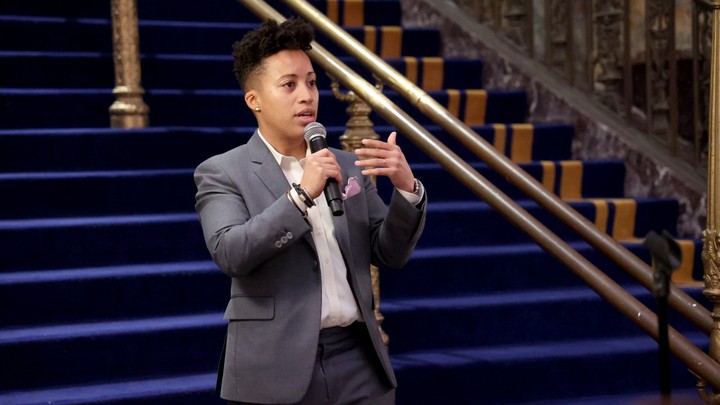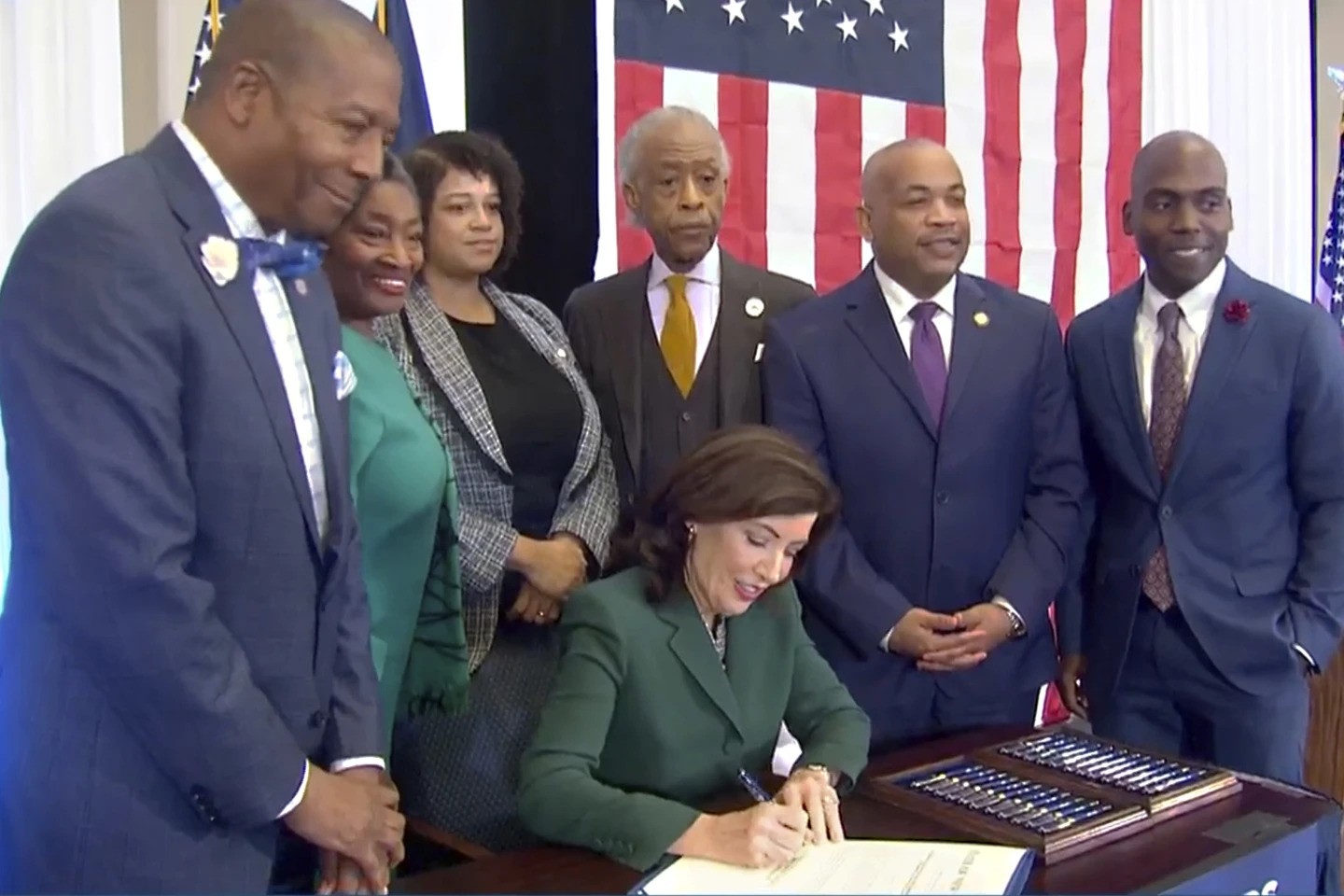In a landmark move, New York City is set to become the largest U.S. city to enact a reparations program. On Thursday, the City Council passed two pivotal bills that will establish both a Truth, Healing, and Reconciliation Commission and a dedicated reparations task force.
Councilmembers Crystal Hudson and Farah Louis, who sponsored the legislation, emphasized the importance of addressing New York’s history of slavery and its ongoing impact. “Today, the New York City Council voted to pass legislation establishing municipal efforts to acknowledge and address the legacy and impact of slavery and racial injustices in New York City,” the Council announced in a press release.
Legislation’s Scope and Purpose

The newly passed bills aim to foster healing and initiate a long-overdue conversation about the city’s historical involvement in slavery. As the press release explained, “The package of legislation would establish a Truth, Healing and Reconciliation process on slavery within New York City (which had one of the highest rates of slave ownership in the country in the 1700s), a reparations study, informational signs at the City’s first slave market, and a taskforce to consider the creation of a ‘freedom trail’ commemorating abolitionist movement and Underground Railroad sites.”
The commission’s role will be crucial in examining the deep-rooted issues tied to this dark chapter in the city’s history. According to the Council, the goal is to “establish facts about slavery in New York City and its ongoing legacies, protect and acknowledge affected persons and communities, and recommend changes for government and institutions to prevent the perpetuation and recurrence of injustices from the legacy of slavery.”
Councilmembers Hope for Lasting Change
Both Hudson and Louis are hopeful the legislation will create meaningful change in New York City. Hudson, who played a key role in championing the bills, believes the new laws will be instrumental in addressing systemic racism. She shared, “The passage of these bills represents a significant step for New York City. The harm slavery caused Black Americans continues to be felt today. Our nation’s inability to properly redress such a historic wrong allows this deep injustice to continue to manifest itself in distinct, tangible ways — be it the prison-industrial complex, predatory lending, redlining, or inequality in our school systems.”
Hudson went on to connect the new legislation to her 2021 campaign platform, which had centered on combating racial inequality. “When I first ran for office in 2021, I released A Black Agenda for New York City, outlining six bold recommendations that would meet the urgency of the racial reckoning facing our city. One of those recommendations was the creation of a citywide Truth, Healing, and Reconciliation process centered on acknowledging the city’s racist practices and historic treatment of Black New Yorkers,” she said.
She further expressed hope that the program would expose the harmful policies embedded in the city’s institutions, saying, “And it is my hope that as the nation’s largest city — with the biggest municipal budget — our truth, healing, and reconciliation process will work; it will identify racist, anti-Black policies at the foundation of our city’s institutions and it will yield material solutions to address these foundational cracks.”
Louis echoed Hudson’s optimism, calling the legislation a “crucial step towards justice and equity.”
Opposition to the Bills

Not all members of the City Council were in favor of the reparations bills. Minority Leader Joseph Borelli was vocal about his opposition. “I’ll move before I’ll pay,” Borelli told the New York Post. He was among the eight councilmembers who voted against the bills, citing personal beliefs that reparations for slavery were not justified.
“If they can introduce me to one New Yorker who owned a slave I’d be happy to consider it,” Joseph Borelli Added.
“But until then, I am not paying a dime as a reparation for a harm I did not cause, nor condone, nor once participated in.”
The debate around reparations continues to be a heated issue across the nation, and New York City’s decision could influence other major cities to follow suit.
What Happens Next?
With the passage of these bills, the focus now shifts to the implementation of the Truth, Healing, and Reconciliation Commission. The commission is expected to begin its work by collecting facts on the historical legacy of slavery in New York and the ways it continues to affect the city’s Black residents.
City officials are optimistic that the commission and the reparations task force will pave the way for long-term solutions aimed at rectifying past injustices. While opposition remains, the legislation marks a historic step toward addressing centuries of racial inequality and systemic oppression.



